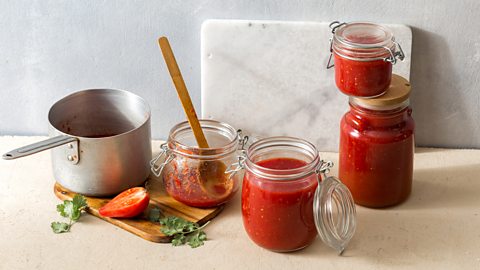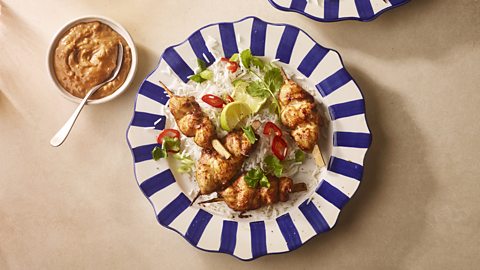Should we all be eating more of this spice?
Lots of things can make us feel sick from time to time. From pregnancy and anxiety to stomach bugs and motion sickness. But can this commonly used spice help? And does it have other health benefits?
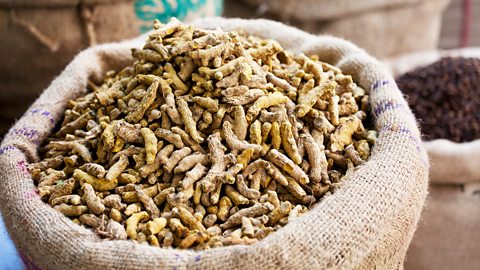
Used in tea, biscuits and soft drinks, ginger is the fiery spice that’s said to combat a host of ailments, including nausea. But can it really transform your health? Here’s what the experts say…
Can ginger stop nausea?
The science behind this is well documented, with study after study highlighting that ginger really does reduce nausea symptoms for many people. Even the NHS suggests drinking ginger tea for nausea. But why does ginger have this effect?
“It’s due to its powerful anti-inflammatory properties which assist with reducing inflammation in the gastrointestinal tract and therefore relieve discomfort and settle upset stomachs,” explains dietitian and BDA spokesperson Anna Daniels.
While many studies have focussed on ginger capsules, there have also been studies examining the effectiveness of ginger biscuits, ginger syrup and studies on ginger tea. They have all shown that ginger has reduced nausea symptoms when compared to placebos.
Easy ginger biscuits
There’s evidence to suggest that even ginger biscuits could help quell nausea

What other health benefits are linked to ginger?
It's not just nausea that ginger is said to help with, there are other health issues it's said to improve. But is this true?
Protecting against inflammation and boosting your immune system
There’s no miracle ingredient that will ‘boost’ your immune system, it’s important to follow a healthy, balanced diet that contains all the vitamins and minerals your body needs, say experts.
However, there are some ingredients which, due to containing powerful antioxidants, can help. Is ginger one of them? Daniels believes so. “Ginger contains bioactive compounds like gingerol, which has potent antioxidant properties and only a small amount – just one teaspoon or the size of a garlic clove, will provide you many health benefits,”
“With its high levels of antioxidants and other bioactive compounds, ginger can help strengthen the immune system, reducing the risk of infections,” she explains.
This is backed up by studies highlighting its antioxidant properties. And, perhaps more encouragingly, for those with auto-immune disorders. Recent research conducted by the University of Colorado, suggests it could help protect against inflammation in the body.
Prof. Kristen Demoruelle decided to conduct the study because ginger is something people are already taking to help with symptoms. “Many of my patients with autoimmune diseases take ginger supplements, but there are not many research studies that look at exactly how ginger can exert anti-inflammatory effects in people.”
“We wanted to investigate the anti-inflammatory effects of ginger by looking at its effect on a specific set of inflammatory cells called neutrophils. Neutrophils can be overactive in several autoimmune diseases, like rheumatoid arthritis, lupus and antiphospholipid syndrome.
“Our study is the first to confirm that ginger can modulate overactive neutrophils in people. Because we were able to demonstrate a specific inflammatory cell that can be modulated by ginger, our findings can begin to zero in on exactly which people might benefit most from anti-inflammatory effects of ginger.”
The upshot? Ginger can help to alleviate symptoms of some autoimmune disorders. However, before you reach for the ginger ale, Demoruelle explains: “Our study used a ginger supplement. It is difficult to know if ginger teas or fresh ginger would have a similar effect because these forms of ginger consumption generally have lower concentrations in the body compared to supplements.
“It will be important in future studies to also look at the effect of ginger in teas and foods as this could be important. It is also of note that our study included people without autoimmune disease.
“While we expect we would see similar effects in people with autoimmune disorders, particularly those with autoimmune diseases characterized by overactive neutrophils, like rheumatoid arthritis, lupus, vasculitis and antiphospholipid syndrome, those are studies we still need to do.”
Can ginger reduce aches and pains?
“Ginger also has analgesic properties and may help reduce muscle pain and soreness,” says Daniels.
This is something that’s backed up by studies that focus on muscle pain due to exercise. Ginger’s anti-inflammatory effect can reduce muscle pain after intense physical activity, according to one study, another looked to see if participants who had been strength training could reduce muscle soreness by taking either raw ginger or heat-treated ginger.
Prawns with ginger and spring onions
Ginger features heavily in this classic stir-fry
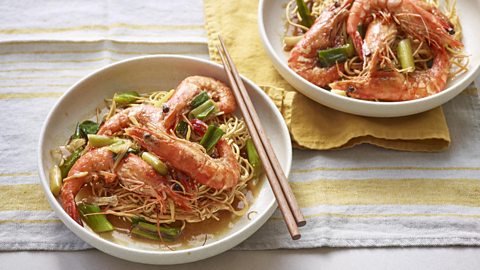
Other potential health benefits of ginger
“It is also known to assist in lowering cholesterol levels and blood pressure.). It has cardio protective properties and can assist in promoting heart health and reducing the risk of heart disease. Due to its thermogenic properties, it may assist in aiding in weight management by increasing metabolism,” says Daniels.
These claims have been examined by Prof. Biagio Fallico, University of Catania, Italy.
“Ginger has been an important dietary ingredient in daily South Asian cuisine and traditional Chinese medicine for millennia. In addition to adding to the flavour and aroma of dishes, historically it’s always been administered to help with many ailments including asthma, flu, indigestion and gastrointestinal discomfort.”
Fallico’s study was far reaching – they wanted to examine ginger’s ‘bioactive components’ and see if they really did help combat health issues.
“Gingerol are active compounds of ginger with anti-inflammatory, anti-bacterial and anti-carcinogenic properties,” he explains.
“Another bioactive compound is the ‘6-Shogaol’ which is also reported to have many pharmacological and health characteristics like being anti-inflammatory, anti-ulcer, anti-prostaglandin, anti-carcinogenic, anti-invasive and have many other properties as a very powerful expectorant or anti-tissue effect, which may assist in reducing blood pressure.”
While more studies are required – especially in humans, Fallico issues a note of caution before thinking that ginger will solve all your medical woes.
“I’ve two certainties with ginger. Firstly, a picture of ginger on a food label doesn’t mean the product will carry any benefit and secondly, you cannot have an unhealthy lifestyle and offset it with ginger, regardless of whether it’s in food or in supplements.”
Golden turmeric latte
If you’re feeling under the weather, this warming drink comes with grated ginger
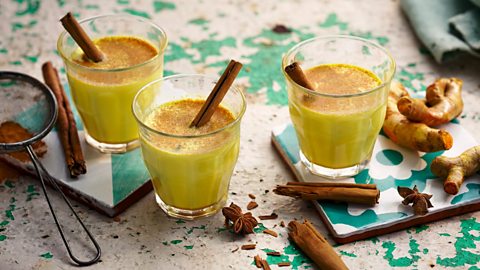
How to use ginger in your food
“There's no need to peel it,” says Emily Jonzen author of cookbook The Goodness of Ginger and Turmeric. She adds: “Just give the skin a scrub and chop or grate it as you wish.
If you’re new to cooking with it Jonzen advises: “It has a strong flavour and a fieriness to it so introduce it to your cooking a little at a time.
“Try it in a drink first; grate a little ginger into a mug, add a squeeze of lemon juice and a teaspoon of honey and pour over hot water for a delicious, comforting beverage.” Then you can start adding it to other dishes such as stir-fries, rice dishes and Jonzen’s favourite “sticky ginger cake.”
Sticky ginger puddings
We can’t promise this will benefit your physical health, but they will bring a touch of comfort to your meal
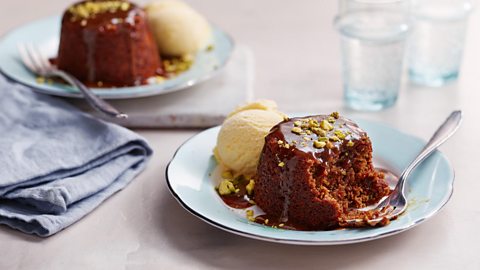
If you’re looking to maximise the health benefits when cooking with it, Daniels suggests cutting it into smaller pieces. “This breaks down the cell walls and can enhance its bioavailability and make it easier to absorb – so incorporating it in tea when its grated or minced is perfect.
“Alternatively, create salad dressings by whisking together grated ginger, olive oil, vinegar, honey and a dash of soy sauce or add minced or grated ginger to stir-fries with plenty of vegetables and lean proteins such as seafood, fish, chicken or tofu.”
“Fermented ginger products, such as ginger beer or fermented ginger extracts, may have increased bioavailability due to the fermentation process too.
“Piperine and curcumin compound found in black pepper and turmeric have been shown to enhance the absorption ginger, so combining ginger with these ingredients may boost its bioavailability – you could combine the three in a hot drink.”
Originally published May 2024.
